By Ted Lipien Cold War Radio Museum Secession, aggression, and threats at large. Rebellions, upheavals, and street fights at hand. How frightening it is to be in charge Of this vast and terrible land! What seemed immortal is now dead. What had not existed now abounds. May God not allow what I fervently dread – That the winds of yore…
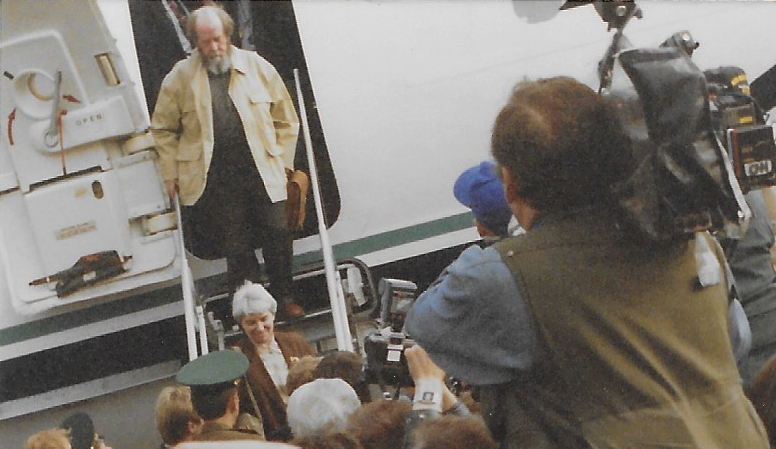
SOLZHENITSYN Target of KGB Propaganda and Censorship by Voice of America
OPINION Cold War Radio Museum How Voice of America Censored Solzhenitsyn SOLZHENITSYN, Target of KGB Propaganda and Censorship by Voice of America By Ted Lipien This research article, written for Cold War Radio Museum website to coincide with the 100th anniversary of the 1917 Bolshevik coup in Russia, deals primarily with censorship at the U.S. taxpayer-funded and government-run Voice of…
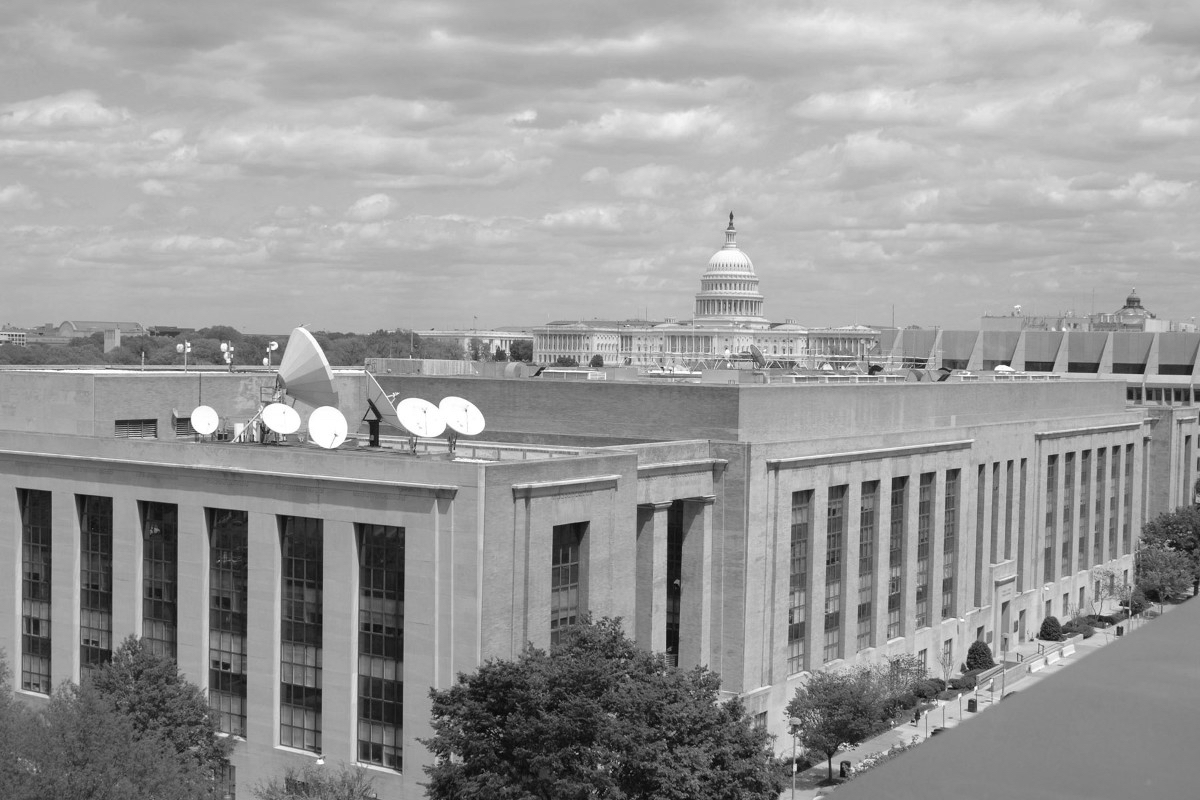
OPINION Cold War Radio Museum How Voice of America Censored Solzhenitsyn China, Iran, Cuba, North Korea By Ted Lipien When in 1974 the Voice of America (VOA) banned Alexandr Solzhenitsyn from its programs, the push for the ban may have originated with Secretary of State Henry Kissinger. Today, personal, ideological and partisan preferences of VOA managers and…
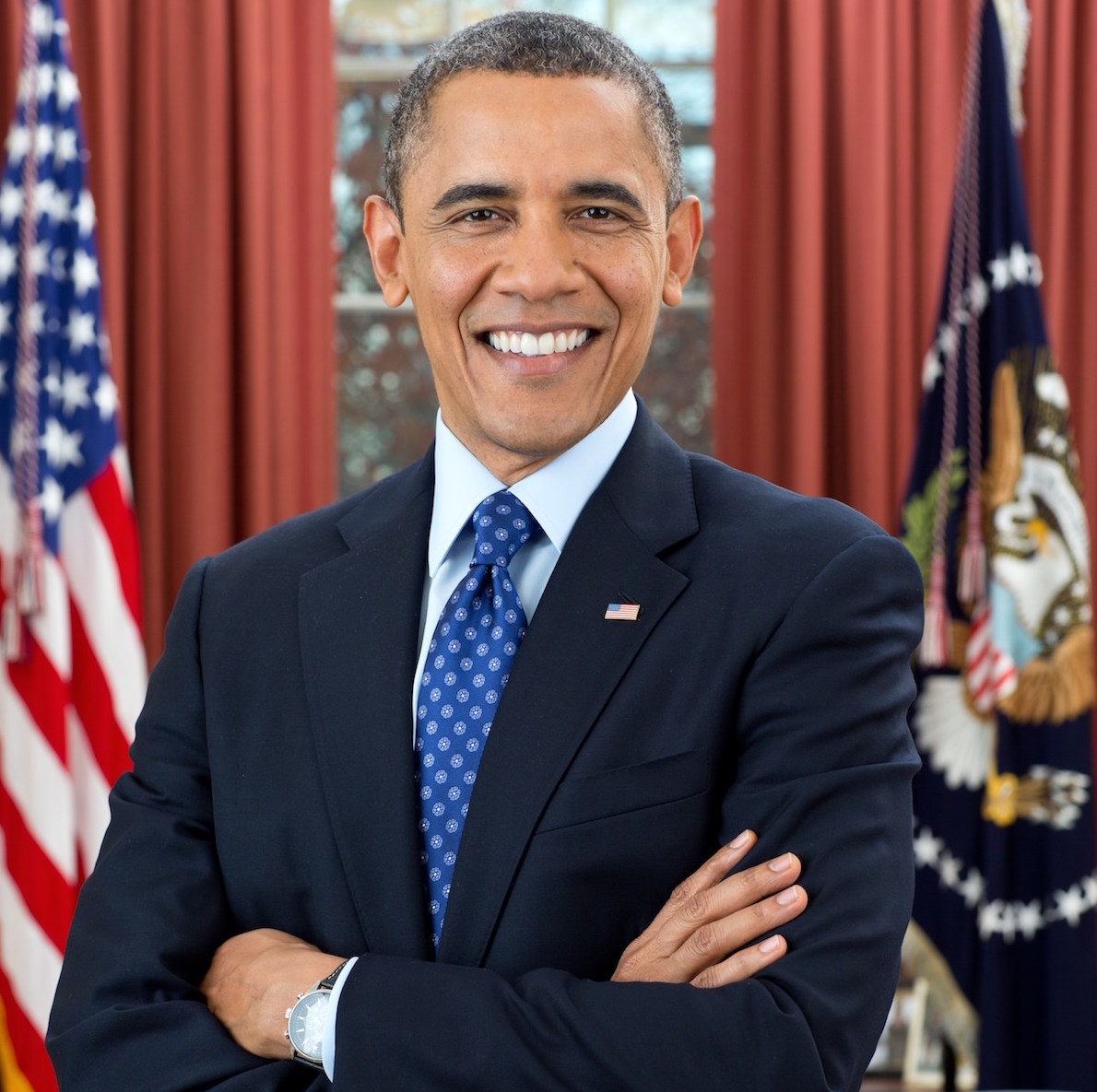
OPINION Cold War Radio Museum How Voice of America Censored Solzhenitsyn The Obama “Reset” with Russia By Ted Lipien Hillary Clinton seemed to have had some understanding of how Russian propaganda works when she made her critical comments about the Broadcasting Board of Governors in 2013 to the House Committee on Foreign Affairs, calling the U.S.…
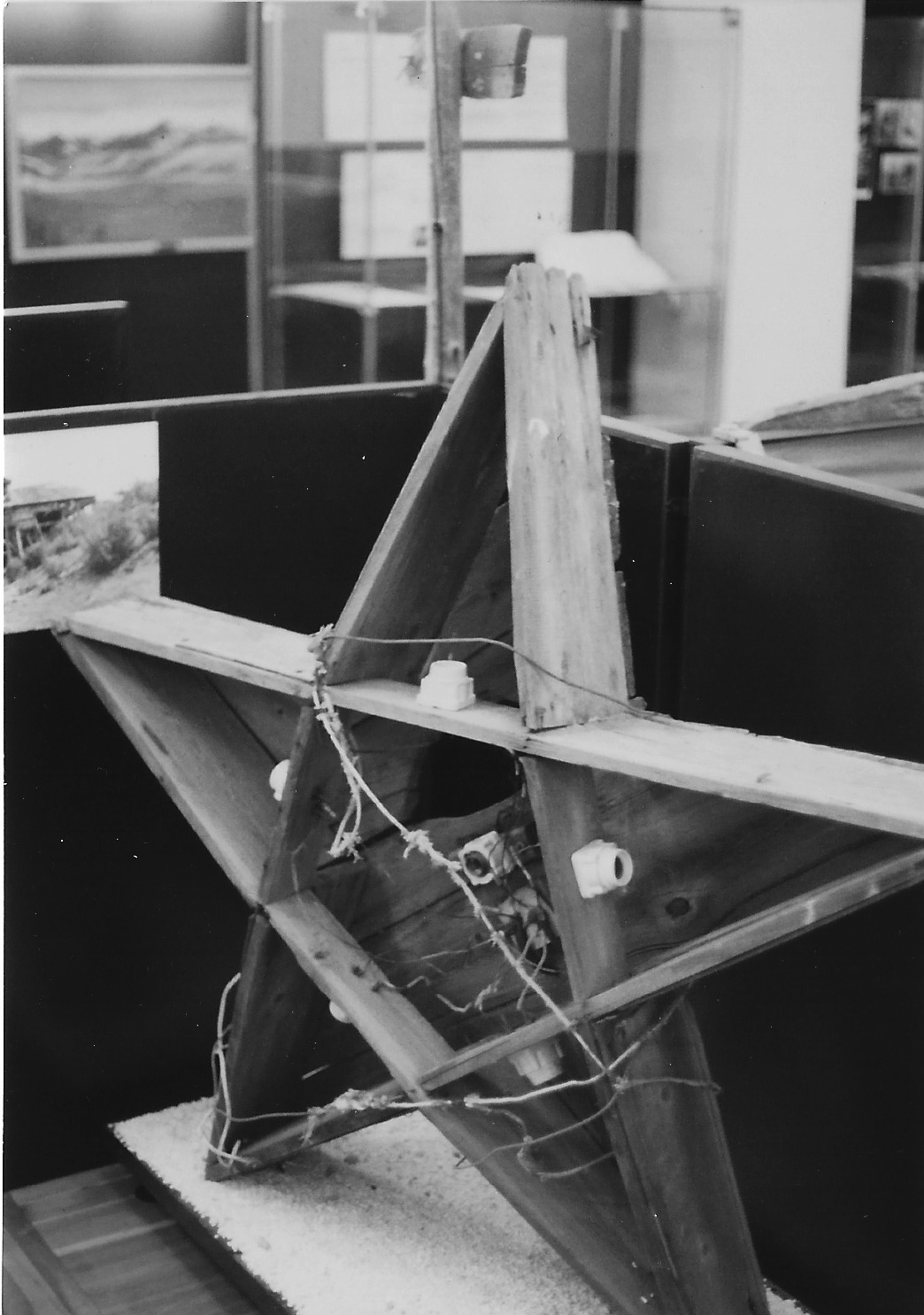
OPINION How Voice of America Censored Solzhenitsyn Radio Liberty Fails on Russian Interference By Ted Lipien The vast majority of political propaganda and disinformation in U.S. media is originated domestically by American commentators, partisan think-tanks, reporters and social media users. But all too often, U.S. government officials, as well as journalists, both government-hired as in the Voice…
MSZANA DOLNA NA 150-TĄ ROCZNICĘ NIEPODLEGŁOŚCI STANÓW ZJEDNOCZONYCH
Tadeusz Lipień
4-go lipca Ameryka obchodziła Dzień Niepodległości. Ten szkic ma na celu przypomnienie jak mieszkańcy międzywojennej Rzeczypospolitej obchodzili w 1926 r. w wyjątkowy sposób 150-tą rocznicę podpisania amerykańskiej Deklaracji Niepodległości. Włączyłem do niego także osobiste wspomnienia o moich krewnych i innych mieszkańcach mojej rodzinnej miejscowości Mszany Dolnej, którzy w 1926 r. przesłali specjalne życzenia narodowi amerykańskiemu.

Województwo Lubelskie; Polskie deklaracje szacunku i przyjaźni dla Stanów Zjednoczonych: przedstawiciele województw i okręgów, organizacje prowincjonalne, instytucje wojskowe, organizacje społeczne, wydziały i studenci instytucji akademickich; Tom 2; Kolekcja Biblioteki Kongresowej; 1926 r.
Read in English: “History’s Greatest Fourth of July Birthday Card: A Personal Story of Polish-American Friendship“
History’s Greatest Fourth of July Birthday Card: A Personal Story of Polish-American Friendship
By Ted Lipien
Today, July 4, 2017, America celebrates its Independence Day. This article is about a unique way in which the citizens of the interwar Polish Republic marked in 1926 the 150th anniversary of the signing of the American Declaration of Independence. I combined it with a personal story about my relatives and other inhabitants of my former hometown of Mszana Dolna who participated in the 1926 4th of July celebrations.

Read in Polish: “MSZANA DOLNA NA 150-TĄ ROCZNICĘ NIEPODLEGŁOŚCI STANÓW ZJEDNOCZONYCH“
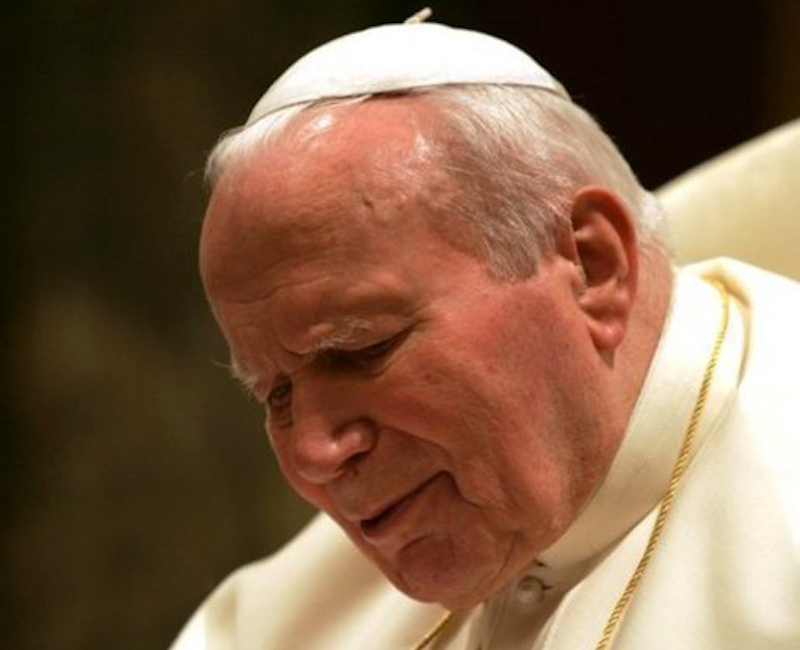
![]() Cold War Radio Museum
Cold War Radio Museum
October 16, 2016
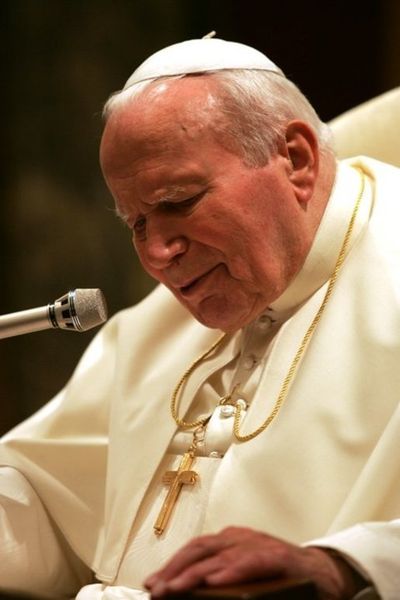 A radio interview with future Pope John Paul II, recorded and first broadcast by the Voice of America (VOA) in 1976, was rebroadcast by VOA’s Polish Service on October 16, 1978, shortly after the news of Cardinal Karol Wojtyła’s election as new Roman Catholic pope had been announced at the Vatican.
A radio interview with future Pope John Paul II, recorded and first broadcast by the Voice of America (VOA) in 1976, was rebroadcast by VOA’s Polish Service on October 16, 1978, shortly after the news of Cardinal Karol Wojtyła’s election as new Roman Catholic pope had been announced at the Vatican.
On the anniversary of the election of Kraków’s Archbishop as Pope John Paul II, Cold War Radio Museum is posting the audio of the VOA interview. The conversation is in Polish. An English transcript of the opening segment is included below the audio player.
Former VOA Polish Service announcer, producer and artist Roma Starczewska Murray is credited with saving the 1976 recording and putting it on the air in VOA Polish Service evening broadcasts on October 16, 1978, the day of John Paul II’s election.
VOA broadcaster and future VOA Polish Service director Tadeusz Lipień (Ted Lipien) had conducted the interview with Cardinal Karol Wojtyła in the summer of 1976 in Washington D.C. at the American University campus where Krakow’s archbishop was staying at a guest house. Wojtyła’s long-time personal secretary and future Archbishop of Kraków Stanisław Dziwisz had traveled with him to the United States and was present during the interview. Cardinal Wojtyła visited Washington after attending the 1976 Eucharistic Congress in Philadelphia where he met Dr. Zbigniew Brzezinski who later became President Jimmy Carter’s National Security Advisor from 1977 to 1981. 1
The Polish archbishop took some political risk in agreeing to talk to the Voice of America during his 1976 U.S. visit. The communist regime in Poland objected to VOA Polish broadcasts, but not as much as it objected to Polish broadcasts by Munich-based, U.S.-funded Radio Free Europe – RFE (Radio Wolna Europa – RWE).
The VOA interview was not overly political, but Cardinal Wojtyła spoke about the universal human need for liberty and truth. While it was a powerful statement for anyone listening in Poland, that was as much as Cardinal Wojtyła could say publicly to VOA without getting in trouble with the communist authorities after his return to his native country. For the same reason, there was no meeting during his visit to Washington with U.S. President Gerald Ford.
An interview with the Voice of America was a risk he was willing to accept to show his support for free speech and democracy. During the Cold War, Cardinal Wojtyła was communicating secretly with Radio Free Europe and provided RFE Polish Service director Jan Nowak Jeziorański with information about the Catholic Church in Poland. RFE had more airtime, more hard-hitting programs and a much larger audience in Poland in the 1970s than the Voice of America.
John Paul II made his first visit to Poland as pope in 1979. It was covered extensively but remotely by RFE and VOA thanks to radio feeds provided by Vatican Radio. Neither VOA nor RFE was allowed by the Polish communist regime to send a correspondent to Poland. Both stations, however, had live coverage from some of the major events of the pope’s 1979 visit to the United States.
In 1980, after a series of workers’ strikes, the Solidarity (Solidarność) labor union movement was formed under the leadership of Lech Wałęsa. In December 1981, the communist regime of General Wojciech Jaruzelski imposed martial law in an ultimately unsuccessful attempt to crush Solidarity and its peaceful human rights movement.
Throughout the 1980s, Solidarity activists and the general population relied heavily for uncensored news, information and opinions on Radio Free Europe, Voice of America, BBC and other Western media sources, in addition to maintaining their own extensive underground information network.
In slightly more than ten years after Karol Wojtyła’s election as pope, Poland shook off Soviet domination and the country regained its independence.
Photo: Pope John Paul II speaks after he was honored with the Medal of Freedom in June 2004, presented during his audience for President George W. Bush and Laura Bush. Papież Jan Paweł II przemawia podczas uhoronowania go Medalem Wolności w czerwcu 2004, wydarzenie ma miejsce podczas audiencji prezydenta USA Georga Busha i Laury Bush. Author: Eric Draper.
Notes:
- Gati, Charles, ed. Zbig: The Strategy and Statecraft of Zbigniew Brzezinski. Baltimore, MD: Johns Hopkins University Press, 2013.
In Chapter 10, “Brzezinski, the Pope and the ‘Plot’ to Free Poland,” Patrick Vaughan wrote (p. 126): “Brzezinski considered RFE very useful. In the White House, he had pushed for a vast increase in the transmitter strength of the five-station network broadcasting to the countries of the Eastern Block in their native languages. Brzezinski advised Carter that the radios were an invaluable weapon in the cold war that was as much about ideas as ballistic missiles and fighter jets. He did so despite the fact that in the early 1970s American senators, among others, had dismissed RFE as a ‘cold war relic.’
Karol Cardinal Wojtyla, then archbishop of Krakow, was one of the million of Poles who listened to RFE each morning. When, at an event in West Germany many years later, an announcer from the radio’s Polish desk introduced himself to Wojtyla, the cardinal replied ‘There is no need. I recognize your voice. I listen to you every morning as I shave.'” ↩
Op-Ed: Radio Free Europe/Radio Liberty can’t cope with Putin propaganda | Digital Journal
By Ted Lipien Published May 8, 2016 by Digital Journal Arguing that the United States has so far failed to invest seriously in understanding or pushing back against the problem of Russian propaganda and disinformation, Anne Applebaum, a Pulitzer Prize-winning author and Washington Post columnist, and Edward Lucas, a senior editor at the Economist, are launching this week a counter-disinformation initiative at the Center for European Policy…
Op-Ed: Voice of America or Voice of Castro without any balance? | Digital Journal
By Ted Lipien Published April 20, 2016 by Digital Journal John Kerry is wrong and what Hillary Clinton had said three years ago about U.S. government media outreach abroad is still true. She called the effort “practically defunct.” According to Secretary Kerry when he spoke on April 19, 2016, “Today’s Broadcasting Board of Governors is not the BBG of a few years ago.” The BBG…